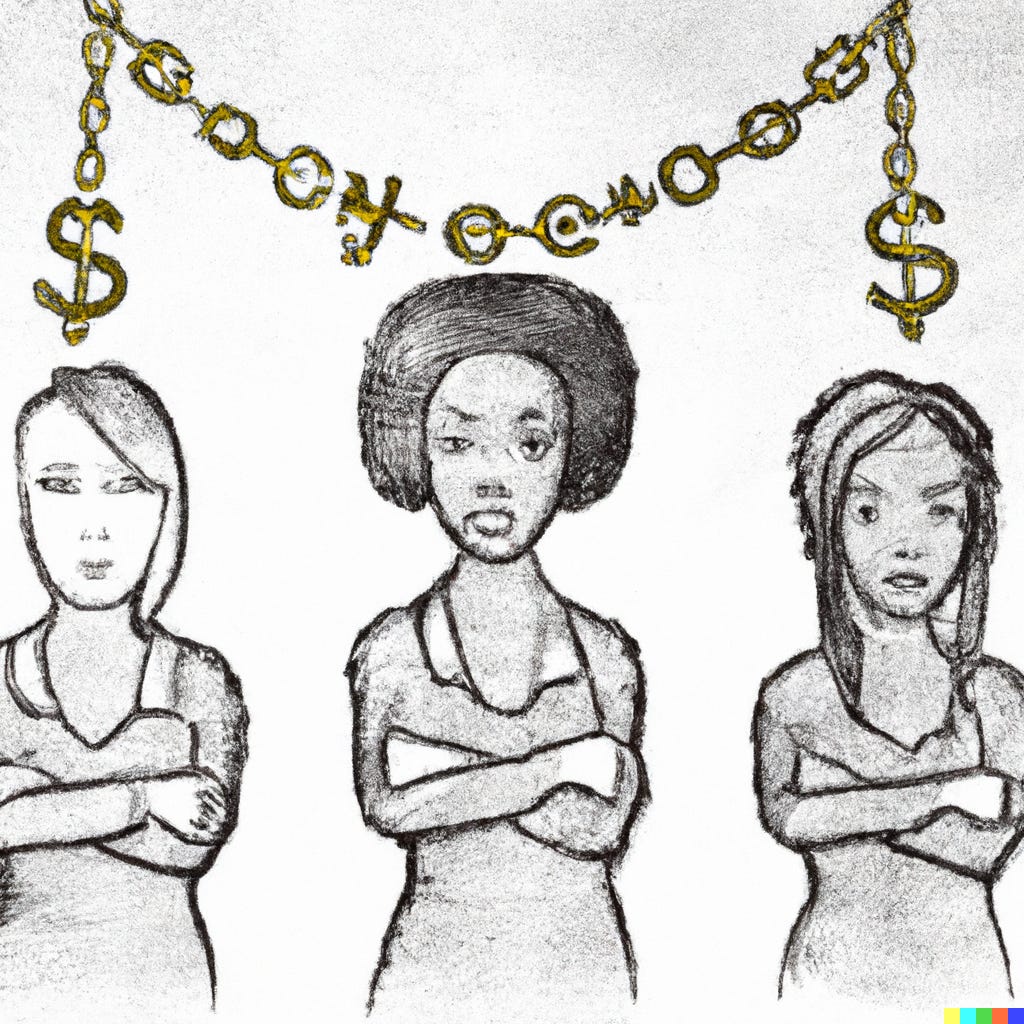Over the weekend. I was asked to write an essay on the long-term business models African startups could, adopt beyond FX arbitrage and lending. The implication was that it seems most new startups focus on two types of business:
payments and digital banking startups who earn revenue by the difference between official and parallel fx exchange rates or high fees charged for allowing customers to make international payments/
startups who lend to companies or individuals, typically at significantly high rates compared to traditional lenders/banking and the desire to get foreign exchange either to make payments internationally or maintain purchasing power by changing local currencies for the almighty dollar or other international (crypto) currencies.
Let’s assume that this is true - and I don’t have the data to back up this assertion -and anecdotally most would agree with this premise. Africa is not short of problems in almost every sector; education, healthcare, agriculture, logistics to name a few. Massive addressable markets that startups love to put in their deck. So why are they ignoring these to focus primarily on payments? Are these founders mentally lazy, preferring to focus on copy and paste strategies they have seen work locally and internationally? Why aren’t they attacking underserved markets that can yield massive returns if successful?
You will not be surprised to learn that I think the issue is more complex. Payments (broadly speaking) is fundamental infrastructure so its not surprising that there is a natural gravitation towards the sector by founders. But at the risk of lumping the people one continent together, I suspect that the average African will list healthcare, education, food/water as primary problems before they mention the need for a virtual card to buy goods from Asos, or foreign currency to buy Amazon stock or the latest shitcoins.
Well we are here because humans are rational and thus founders are dealing with the hand they have been dealt. They know that:
There is little capital required in a payments startups compared to say setting up a logistics business; the historic dearth of local capital thus pushes people to endeavors that can be launched ‘on the cheap’
Foreign VCs who form the bulk of capital in startups have made money on payments; they pattern match and invest in what they know. The other opportunities require more local expertise; because there is a high ‘physical’ component.
Local capital understand local problems. I will say this until I am purple in the face; until we increase the size and velocity of local capital, the problems that are addressed will be those vetted, understood, and invested by foreign investors.
A lost generation?
It does seem that the best and brightest of Africa are focused on these large but limited verticals of financial intermediation and payments; because there is a deep and persistent funding source. It's akin to the Facebook effect of the last decade where the best and brightest of Silicon Valley for a long time were not focused on fundamental problems but how to maximise likes and clicks. This has to change for real sustainable growth but how?
First VC is not the solution. Venture Capital is a hits business that obeys the Power Law. This means that the expectation is that maybe 20% of the companies invested in will make money within a particular time frame. The real problems that we need to focus on; agriculture, healthcare, education; You don’t use gambling money to fund this. Rather you use long-term patient capital that is not looking for 50% growth year on year and a host of vanity metrics
Local capital needs to get involved. Pick any African country and I will show you a currency that has trended weaker. Cedi, Pounds, Naira, Rands, Shilling. They all have one thing in common which is declining purchasing power. It makes more sense to use an allocation of pension funds to invest in the long-term growth of the economy. The major economies of Africa are doing this to different extents but there is no point giving pension beneficiaries retirement funds with sub-inflation yields only to find out that the value has eroded dramatically
If you need to build capital light businesses, then build solutions that address an underserved vertical if building for Africa. If you want extra points, build a company that has global customers. The quintessential example is Gro-Intelligence based out of Kenya which provides insights on agriculture, climate and the economy and has an international customer list.
Capital light, dollar revenues and global customer - chef’s kiss!!Lastly and most importantly, founders need to break away from the seduction of easy raises and copy/paste company building. They have to be more contrarian in their approach to problem-solving. Sure you can start a new payments company but are you going to beat Fawry or Flutterwave? Perhaps, but you may achieve greater success attacking an underserved vertical.
I am reminded of Peter Thiel’s famous question: ““What revolutionary truth do you know that no one else agrees with?” Its a hard one to answer but we need to spend more time on this to build sustainable and defensible companies.
The opportunity is to launch global companies
The irony is that even with a preference of capital light businesses, there are still many opportunities for startups to leverage technology and deliver value to customers. In a continent short of education, why haven’t we seen many apps focused on education/training expanding in multiple countries? Maybe not sexy enough because how many education companies do you read about lauded in the press (compared to Paypal, Alibaba, Nubank etc)? But everyone should ask themselves:
Do I want to be famous, or do I want to be rich?
More important though, is the need to start founding global companies. One fundamental issue is that with few exceptions, African startups are building for Africa, not the world. They are looking for problems that they can solve that are big in our markets and not thinking of problems globally that they can solve from Africa.
Design thinking posits that if you can solve extreme cases, then by default you can extend the solution to customers whose problems are not acute. As an example Apple’s FaceID is available to not just those with limited access to use keyboards, but every single Apple customer. Similarly:
If you can solve the issue of lending, where there is poor credit infrastructure or limited formal identification then you have a greater chance of lending in the world.
If you can provide healthcare access to people in inhabitable areas or where access is expensive, you can provide solutions that bring down the cost of healthcare in more established market
If you can train a young unemployed population on specific technologies in the west then you can then provide lower cos or an extensive formal identification system in Africa then by extension, I should have a much better chance of also leveraging this capability in markets where others are reliant on commoditized infrastructure.
We can thus turn our problems into a source of global solutions.
But our siloed thinking, focusing on just one country or Africa, is pervasive and hard to shake off. As an example, ChatGPT has just come out and whilst brainstorming possible applications, I caught myself restricting myself to local problems that it might solve.
But I travel extensively and consider myself a global citizen. So, what I should be doing is thinking about entrepreneurial ideas that ChatGBT can solve that are relevant globally and not just in Nigeria, Ghana, Kenya or pick your favorite African country. There is a mindset shift that needs to change but let’s be clear it takes work and self-belief that we have it in us to solve the world’s problems.
What’s the way forward?
So in answer to Greg’s question, the business models that African startups should adopt are those that are:
Capital light
Address the real sector
Solve an extreme problem (relative to more developed markets)
With an addressable global market
The next best for me are just startups that are solving real problems and don’t get seduced by the lure growth for its sake. As it happens, I think Greg, who assigned this task, is building what deserves to exist with mPharma, a leader in the healthcare space.
If you are interested in what ChatGPT thinks (you have to ask, as is the rage) then look no further.
Church is now ended, tell your neighbor you love them and see you soon.
Thanks to Gregory Rockson for inspiring this article







Extremely good right up Ngozi. Very well thought out and deliberate in its delivery.
Brilliant and Honest.